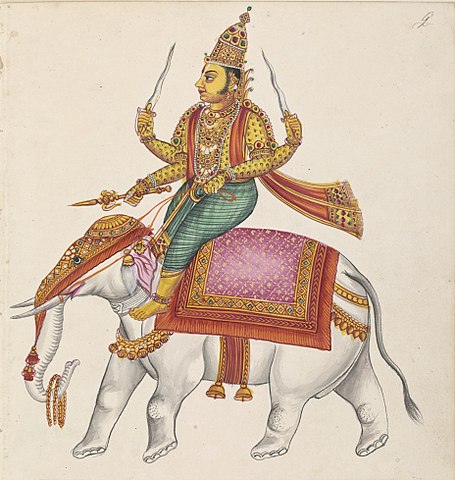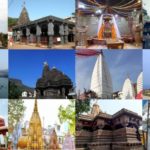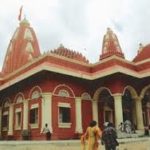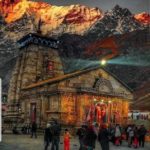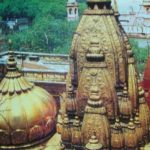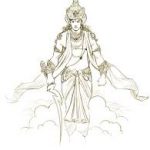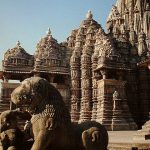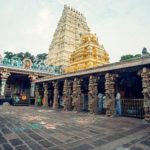The God of Rain and Thunder and Indra is also known to be the king of the gods. Highlighted as the protector of Cows and priests as per the Vedic period, Indra was once revered as one of the main Gods like Brahma and Rudra
He is the God of the skies and had the powers to bring forth thunder and rain at his will. Most farmers pray to him for his blessings especially during droughts so that he would grant them ample rain which would save their crops.
Few lesser known facts of Indra
1.Indra was revered as one of the main Gods like Brahma and Rudra.
2.It was in the post-Vedic period during the age of the Purana, when Indra fell from the front rank of Gods.
3.Lord Indra was the father of Arjuna from Mahabharata. Arjuna, therefore, was a great archer due to his lineage.
4.Like many other deities, Indra has four hands. He holds a thunderbolt in one hand, conch-shell in another, a bow and arrows, a hook and a net in the rest.
5. He was cursed by Sage Gautam for his indecent behavior with his wife, Ahalya. Gautam cursed Indra to have female marks on all his body which later became eyes. Hence, Indra came to be known as ‘the thousand-eyed one’.
6. Indra was a great warrior. As mentioned earlier, Indra had thunderbolts in one of his hands that were his strongest weapon. His six-trunked white elephant Airavata and his seven-headed horse Uchchaihshravas were known to be two of the greatest Vahana, that were invincible in battle.
7. Indra killed the demon Vritra who was wreaking havoc on earth by causing droughts. No God could kill him but Indra did with his lightning bolt.
8. Indra is also described as the ruler of Swarga where the gods live.
9. Other religions like the Cham religion of Cambodia, Buddhism, and in China also revere and commemorate the greatness of this ancient deity.
10. Indra was born to sage Kashyapa and his first wife Aditi.
11. Indra is the eldest among the twelve Adityas, the gods who rule the various regions of cosmos.
12. Indra’s brothers are Dhata, Mitra, Aryamana, Varuna, Amsha, Bhaga, Surya, Pusha, Savita, Tvashta and Vishnu.
13. Indra is the deity of Rig Veda and more than one fourth of the hymns in the Rig Veda are addressed to him.
14. Indra’s mother Aditi bore him in her womb for thousands of years. When a demon called Vritra imprisoned the entire hydrosphere, a chaos arose in the creation. On being urged by Kusava goddess, Aditi gave birth to Indra to eliminate Vrita.
15. Indra’s weapon thunderbolt was crafted by Vishwakarma and made of the bones of sage Dadhichi Rishi.
16. Indra had two daughters named Jayanti and Devasena. Jayanti was married to Shukracharya, the preceptor of the demons while Devasena was married to Kartikeya, the son of Lord Shiva.
17. Indra became the possessor of the elephant Airavata and the horse Ucchaihshrava which arose from the churning of the ocean.
18. Indra handed over the vessel containing ambrosia to Nara and Narayana to keep it far beyond the reach of demons.
19. Once upon a time, there was an intense period of drought in Rasatala, which affected the survival of the snakes. Kadru, their mother, urged Indra to rain in the dominion of the snakes. On being urged by Kadru, Indra covered the sky with blue clouds and poured down copious quantities of water, to ensure the survival of the snakes.
20. Once when Narayana was asleep, Garuda stole the vessel containing Ambrosia and went away. Indra was angry and swiftly flew towards Garuda and struck him with thunderbolt. However, Garuda felt no pain and this surprised Indra. Overwhelmed by Garuda’s prowess, Indra asked him for friendship and to return the vessel back to Narayana. Garuda agreed on the condition that he would devour the snakes for his food. Indra agreed and Garuda returned the vessel of Ambrosia back to Narayana.
21. Once Janamejaya performed a sacrifice to devour all the snakes of the creation. To escape from the sacrifice, the snake Takshaka sought refuge with Indra. However, on discerning this, Janamejaya prayed Indra to bring Takshaka in the arena of the sacrifice. Indra agreed and hiding the snake inside his garments, went to witness Janamejaya’s sacrifice. Indra was pleased on being worshipped by Janamejaya and let go Takshaka from his garments. Just when Takshaka and the other snakes were to be offered as oblation in the fire, a brahmana named Astika intervened and requested Janamejaya to spare the lives of the snakes. Janamejaya was initially reluctant but later on being urged by Indra, decided to let Takshaka and the other snakes live.




